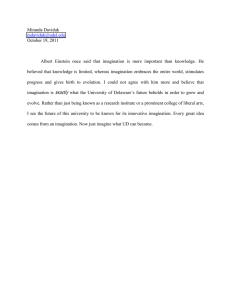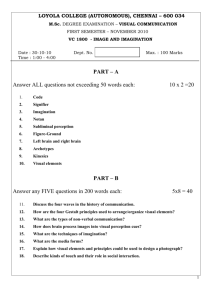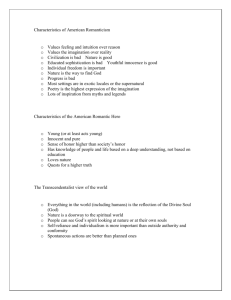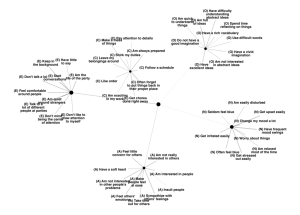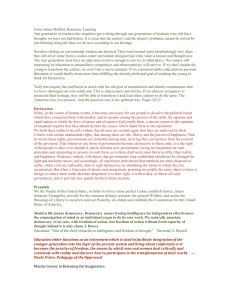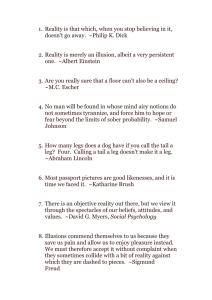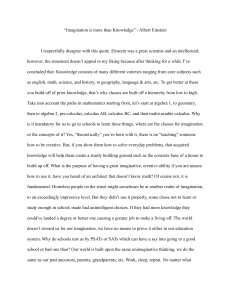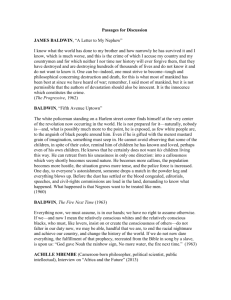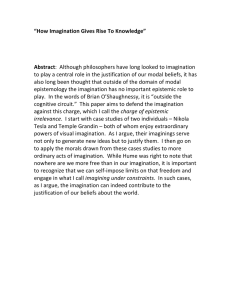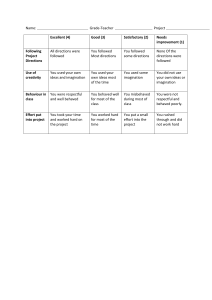A study of imagination in the reception of fictitious narratives
advertisement
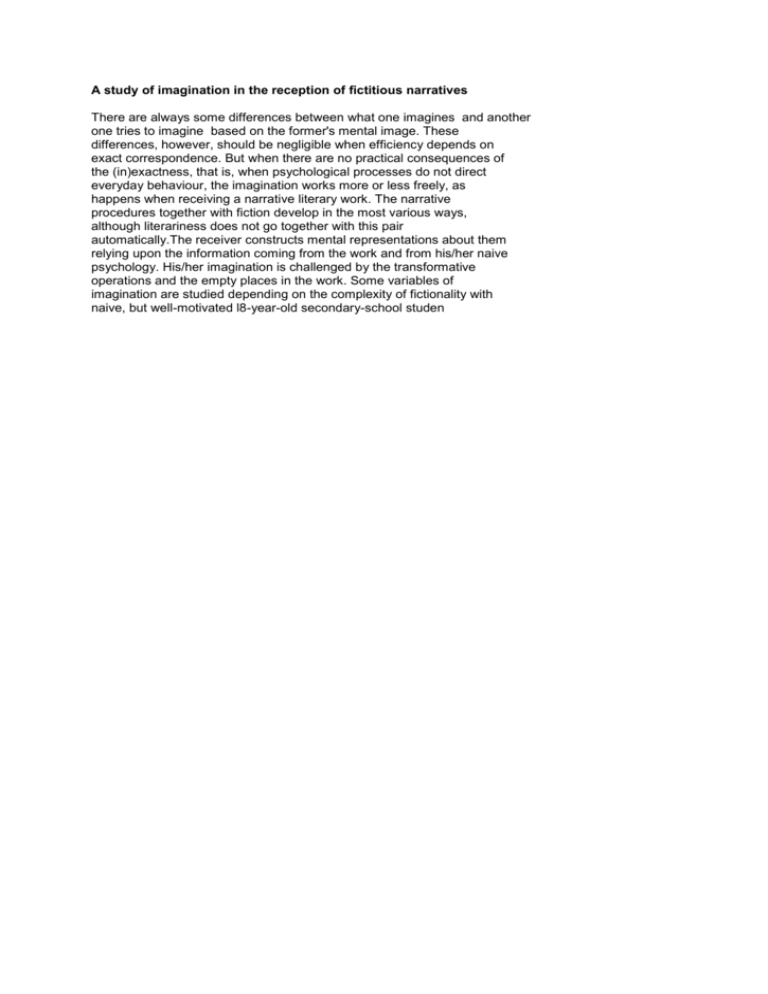
A study of imagination in the reception of fictitious narratives There are always some differences between what one imagines and another one tries to imagine based on the former's mental image. These differences, however, should be negligible when efficiency depends on exact correspondence. But when there are no practical consequences of the (in)exactness, that is, when psychological processes do not direct everyday behaviour, the imagination works more or less freely, as happens when receiving a narrative literary work. The narrative procedures together with fiction develop in the most various ways, although literariness does not go together with this pair automatically.The receiver constructs mental representations about them relying upon the information coming from the work and from his/her naive psychology. His/her imagination is challenged by the transformative operations and the empty places in the work. Some variables of imagination are studied depending on the complexity of fictionality with naive, but well-motivated l8-year-old secondary-school studen

